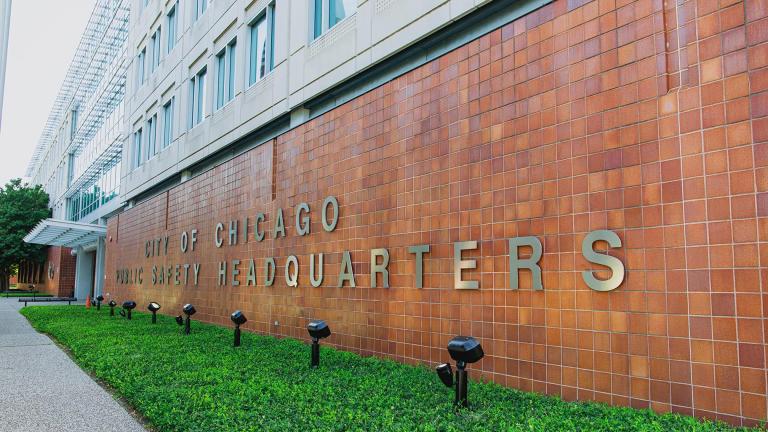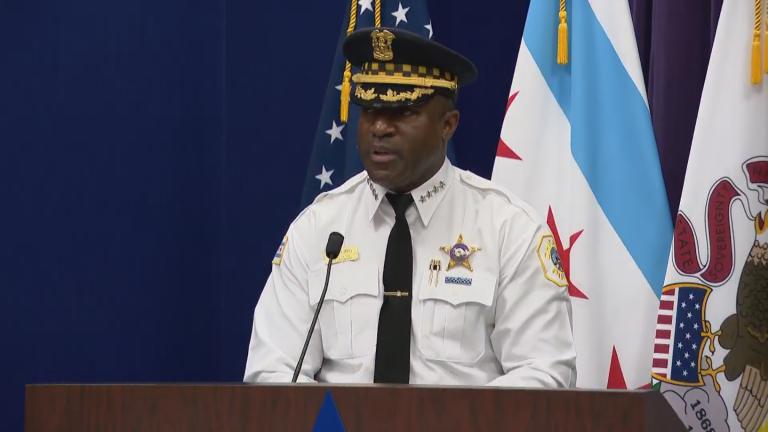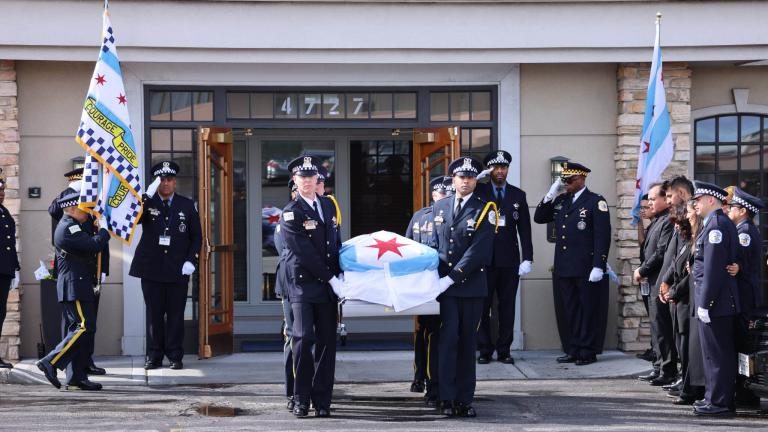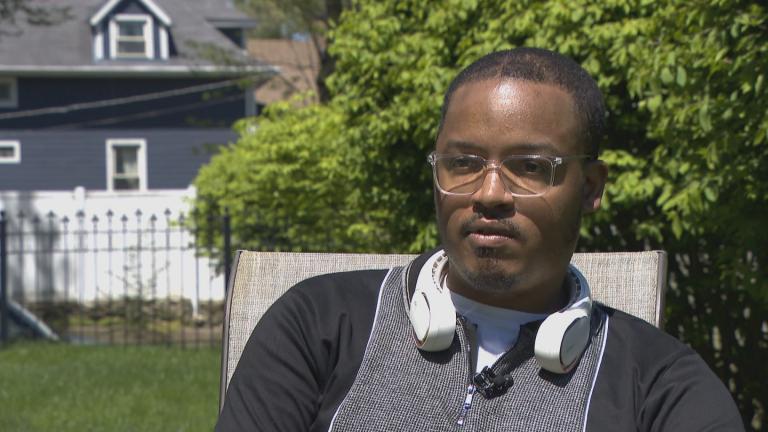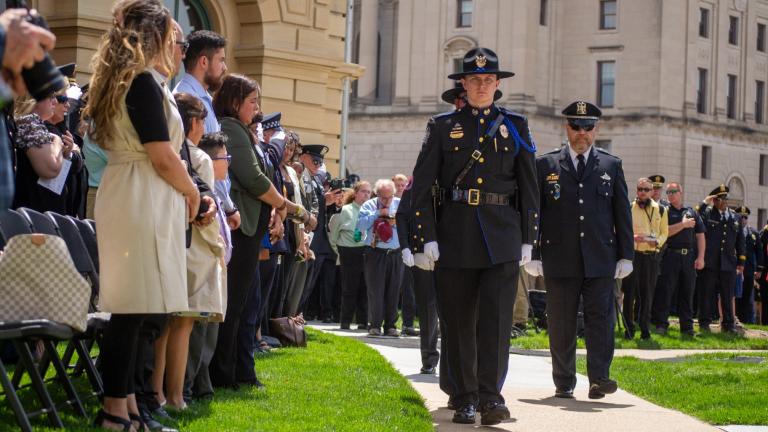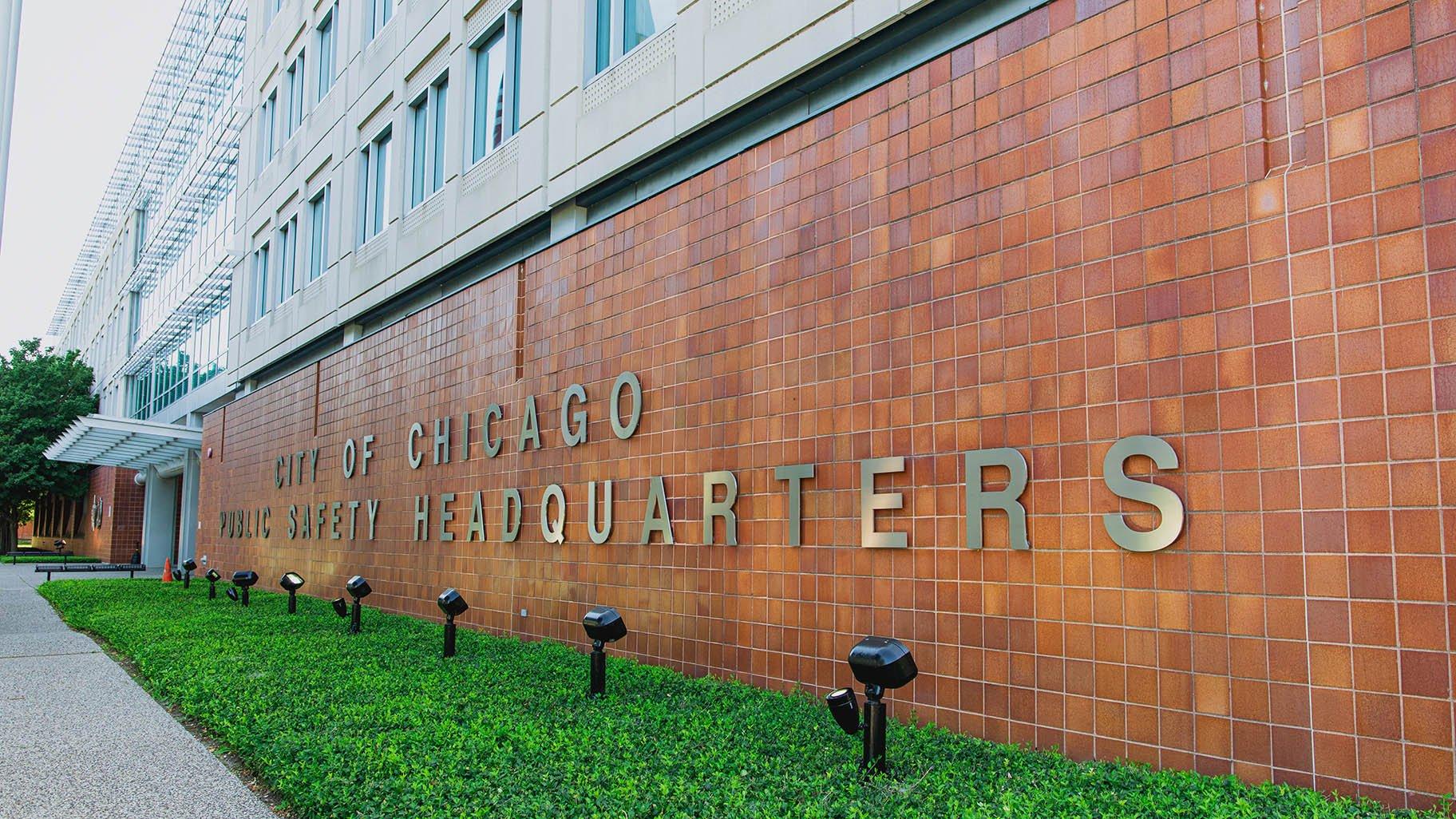 Chicago Police Department Headquarters, 3510 S. Michigan Ave. (Michael Izquierdo / WTTW News)
Chicago Police Department Headquarters, 3510 S. Michigan Ave. (Michael Izquierdo / WTTW News)
Chicago’s largest police union appealed a Cook County judge’s ruling that would allow police officers accused of serious misconduct to ask an arbitrator — and not the Chicago Police Board — to decide their fate, but require those proceedings to take place in public.
Judge Michael Mullen’s decision upheld the effort backed by the city’s largest police union to upend the system used for 60 years to punish officers for serious misconduct, but “split the baby,” said Fraternal Order of Police Lodge 7 President John Catanzara in a video posted to the union’s social media accounts on March 22.
The union’s appeal seeks to overturn Mullen’s ruling, which said allowing cases that could result in officers being fired or suspended for more than a year to take place behind closed doors goes “against a dominant and well-defined public policy.”
The union also objected to Mullen’s ruling that would allow police brass to continue to suspend officers facing serious discipline without pay until their cases are resolved. In addition, Mullen ordered the changes retroactive to September 2022, which would force an arbitrator to reconsider all Police Board decisions made since that date, but the union wants the decision to be retroactive to 2017.
If upheld, Mullen’s decision would require city officials to set up an entirely new system to decide the most serious cases of police misconduct and could gut the power of the Chicago Police Board, which had been responsible for deciding those cases.
Mullen cited the consent decree, a federal court order requiring the Chicago Police Department to change the way it trains, supervises and disciplines officers, as the basis for his ruling that discipline hearings must not take place behind closed doors.
The consent decree also requires city officials to increase transparency in matters of police accountability, and the city must abide by that order, Mullen ruled.
“There clearly is an extraordinarily strong public policy interest in favor of transparency in cases alleging serious misconduct by Chicago Police officers serious enough to result in dismissal or suspension in excess of one year,” Mullen ruled. “Police officers differ from other public and private employees in one crucial respect: they are empowered to arrest and, when necessary, employ lethal force against other citizens.”
The legal dispute has prevented the Police Board from weighing in on whether to fire Chicago Police Officer Eric Stillman for shooting and killing 13-year-old Adam Toledo after a brief foot chase in March 2021 as scheduled, sending Stillman’s case into limbo along with nearly 20 other cases.
Contact Heather Cherone: @HeatherCherone | (773) 569-1863 | [email protected]

